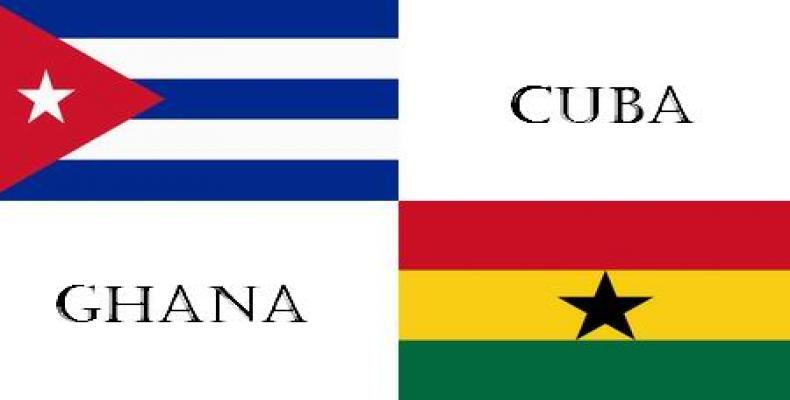Accra, November 7 (RHC) – Former President of Ghana, Jerry John Rawlings, has urged Ghanaians trained in Cuba to be more politically active in their nation and influence developments.
Rawlings said while there is an association of Cuba-trained Ghanaian graduates that has remained well-organized group and has a significant membership, it has maintained a low profile in active politics.
Speaking during a meeting with Greg Parbey, President of ESBECAN at his office on Monday, Rawlings said the knowledge and expertise of Cuban trained graduates had positively affected several fields of endeavour in the country, with the exception of governance. The time had come, he noted, for the graduates to influence national discourse and policy by vying for political party positions and ensuring that their influence is brought to bear on the country’s development agenda.
In 1983 following consultations between Ghana then led by Flt. Lt. Rawlings and Cuba, the first batch of 609 Ghanaian students travelled to Cuba as pioneer students at the Kwame Nkrumah Memorial School at the Isle of Youth in Cuba.
Over the last thirty years, more than 2,000 Ghanaian students have benefited from Government scholarships and graduated from various institutions in Cuba as medical doctors, nurses, pharmacists, biomedical scientists, engineers, architects, veterinary doctors, agronomists, accountants, economists, statisticians, computer scientists and many more.
Ghana's Jerry Rawlings Urges Cuban Trained Professionals to Stay Politically Active

Articles en relation
Commentaires
Laissez un commentaire
Tous les champs sont requis
En reproduction maintenant
Desde Mi Habana
Au suivant
- La Trova Cubana
- Un lugar para la poesía
- Reflejos
Plus de visites
- Les États-Unis annoncent des restrictions en matière de visas liées à la coopération médicale internationale de Cuba
- Le chanteur populaire Paulo F.G. meurt dans un accident de voiture à La Havane
- Cuba : les migrants à Guantanamo sont une provocation et un affront à la souveraineté (+Photos)
- Le gouvernement cubain condamne les intentions des États-Unis concernant la base navale de Guantanamo
- La fermeture de l'USAID ne signifie pas la fin des agressions contre Cuba

